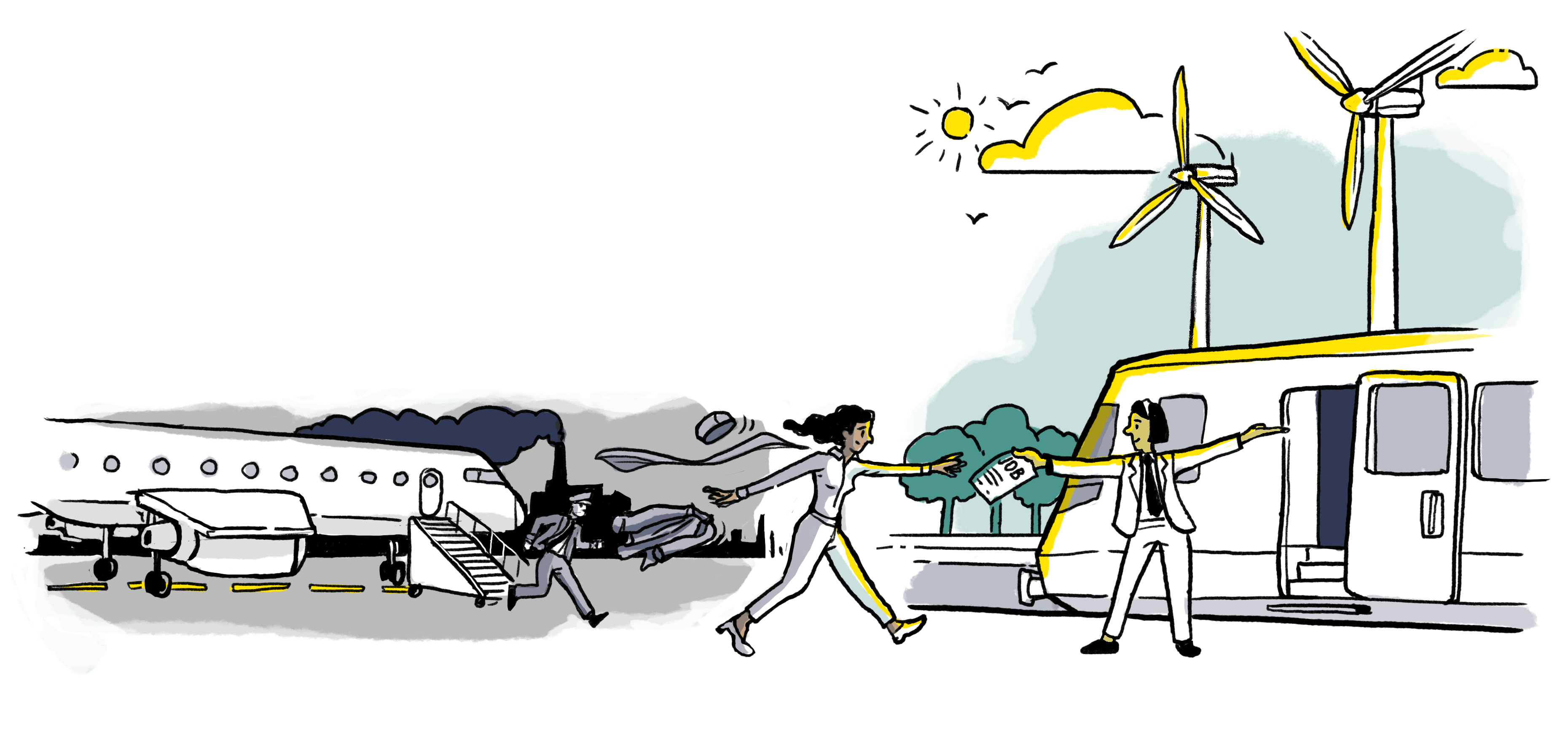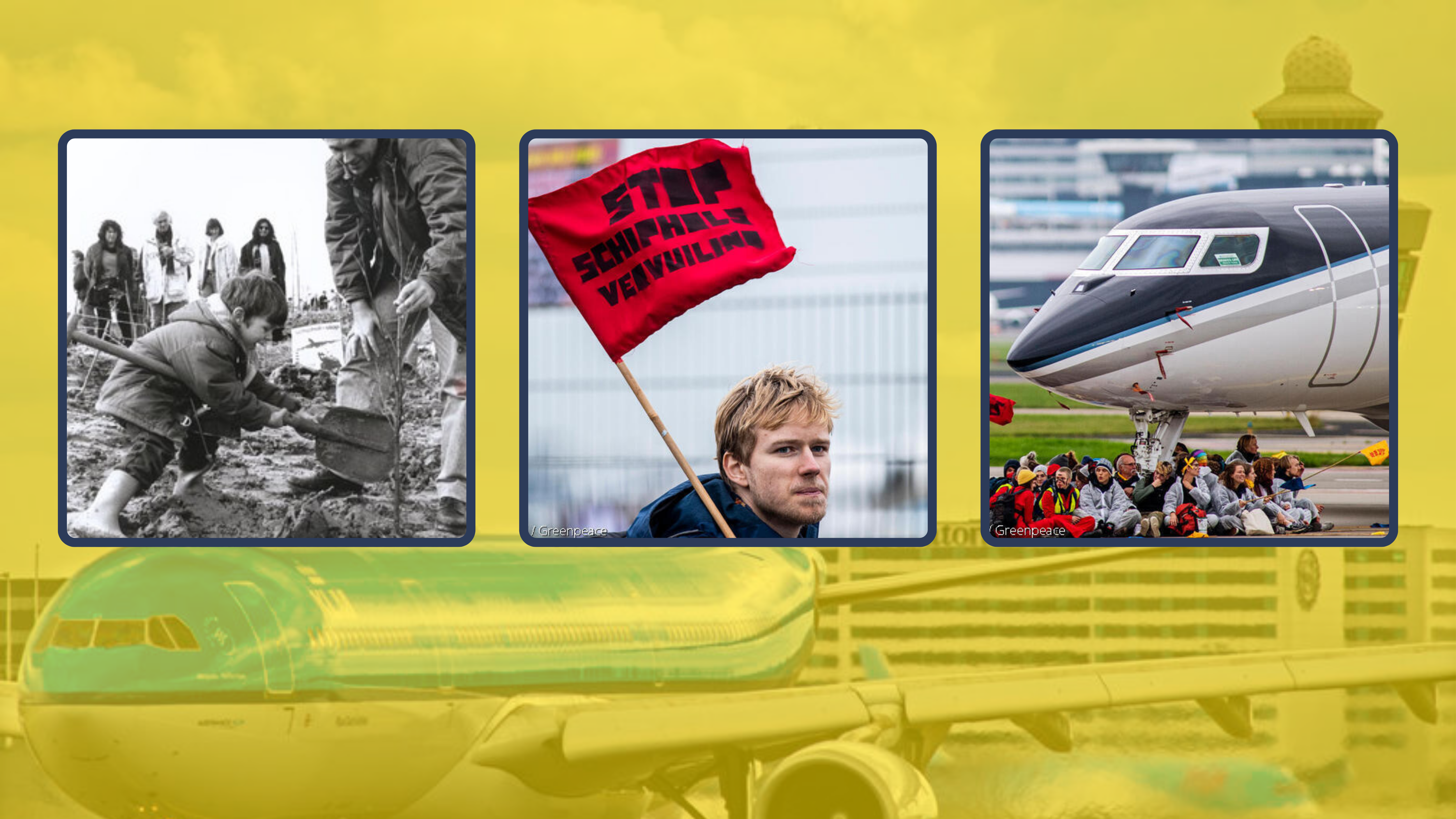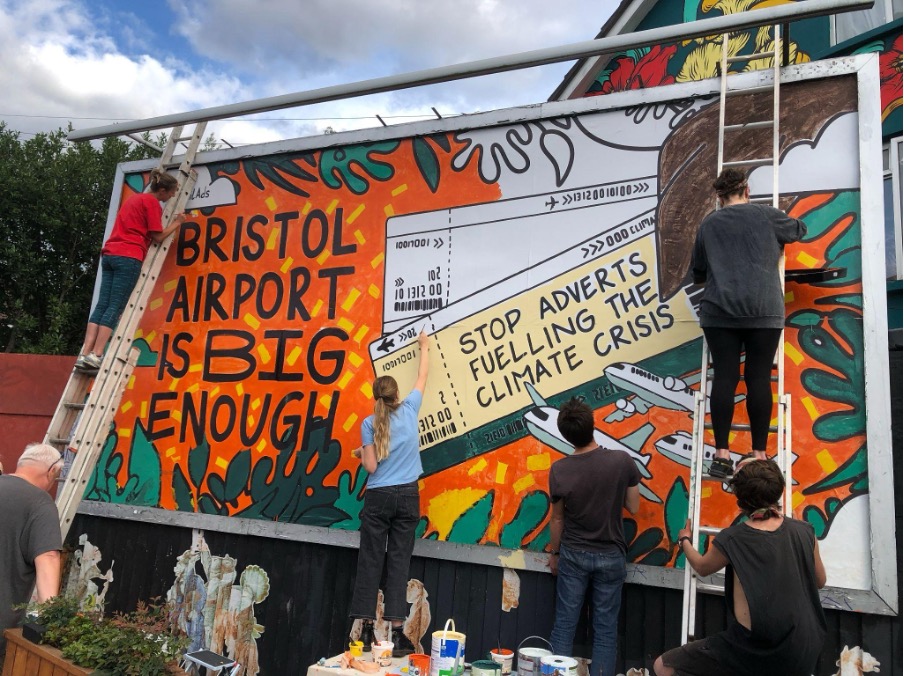Policies to Degrow Aviation

There are many possible policy measures that would degrow aviation. No single measure will tackle all the problems, so a package of different ones is needed. On this webpage, you can see the proposals of the Stay Grounded Network.
Frequent Flying Levy
Right now, it doesn’t matter whether you’re flying to visit your family for the first time in years, or taking a tenth annual flight to the third luxury house on the coast – you’ll pay the same tax for that flight.
A Frequent Flying Levy will target the wealthy frequent flyers, while not affecting 72% of the population.
It will also create six times more tax revenues from aviation, which are needed to fill the large finance gap for the green transition in Europe and in the Global South.
Ban Private Jets
Private jet flights are sky-high and reaching records. While many of us struggle with putting food on the table and paying our bills, the global fleet of private jets has more than doubled in the last two decades.
Private jets and other luxury emissions are not currently regulated as such and largely excluded from key legislation that is supposed to tackle greenhouse gas emissions.
The scandal doesn’t stop at private jets: business flights, frequent flyer programmes, and other “bullshit flights” are also the problem. Only 1% of people are responsible for half of all emissions from flying.
Let’s put an end to excessive flights and:
- ban private jets
- ban air miles
- tax frequent flyers.


Caps and Limits of Airports
Increasing the price of flights alone is not enough to reduce them sufficiently nor cut pollution; the rich can always buy their way out of responsibility. We need limits of flights. Limits are a normal part of everyday life that we accept for our collective safety – speed limits on roads, alcohol limits for drivers, etc. Along these lines, the most effective way to reduce air traffic is to directly cap the number of flights.
We will continously publish material on this type of measure here. We can learn a lot from the “case” of Schipol airport, which shows that capping flights for environmental reasons is already happening and possible. Read our article “Capping airports: An analysis of the Schiphol Airport campaign“.
Report “Degrowth of Aviation”
Flying is the fastest way to heat the planet. How can a reduction of aviation and its climate impact be achieved in a just way? While it has been clear to the climate movement and civil society that “green growth” of aviation is and will be an illusion, clear steps leading to effectively reducing the negative environmental and social impacts of aviation have been missing so far.
In July 2019, during the conference “Degrowth of Aviation” in Barcelona, more than 150 experts and civil society participants discussed different measures. The outcomes of the conference and further discussions led to the published report “Degrowth of Aviation”. It is aimed to spark more campaigns and policies to tackle aviation’s climate impact in a just way.


Ban Airline Advertising
The advertising industry plays an active role in driving demand for aviation. At a time when we need to scale back air traffic movements, end all airport expansion and create a just transition for aviation workers, advertising continues to promote the expansion of an industry that has no credible plan for reducing its greenhouse gas emissions. Aviation adverts are everywhere in our streets, our social media and airline brands sponsor our sports clubs and artistic institutions. Advertising normalises air travel with a superficial glamour that hides the true climate impacts of flying. This delays the system change we need for how we travel.
Let’s end airline advertsing! Take a look at our subvertising toolkit as well as at our toolkit on how to file complaints to advertising regulatory institutions.
Ban Night Flights
Take-offs and landings during the night are an unreasonable burden with particularly harmful health consequences for all people in the vicinity of airports. They are unnecessary and avoidable. Absolute exceptions, such as medical emergencies, do not stand in the way of banning night flights at
airports. Night flights at airports must be stopped immediately.The damage to health and the climate is disproportionate to any alleged necessity of take-offs and landings at night.
From 2024, every year in autumn an “International Day for the Ban on Night Flights at Airports” will take place.


